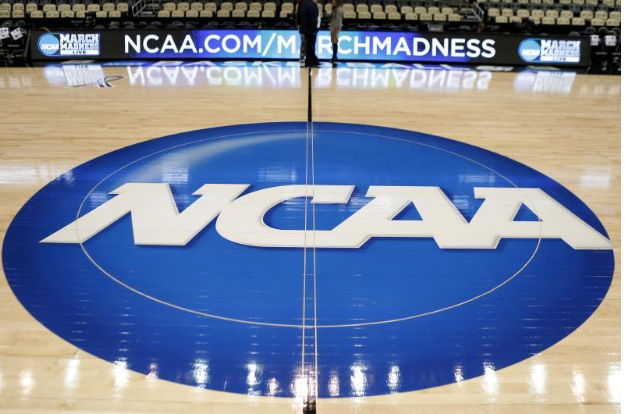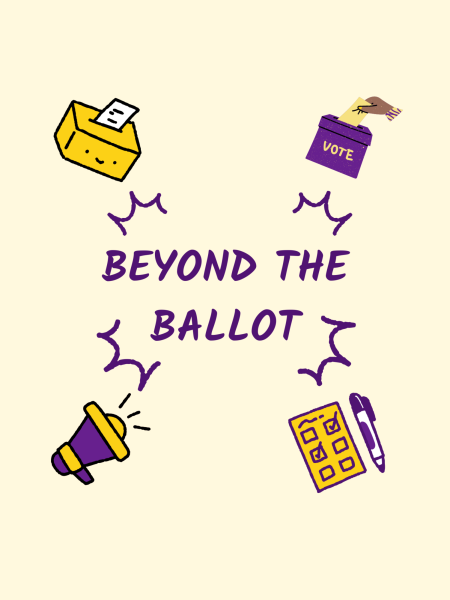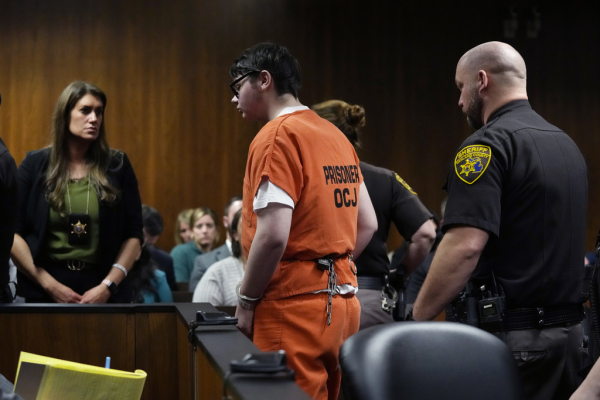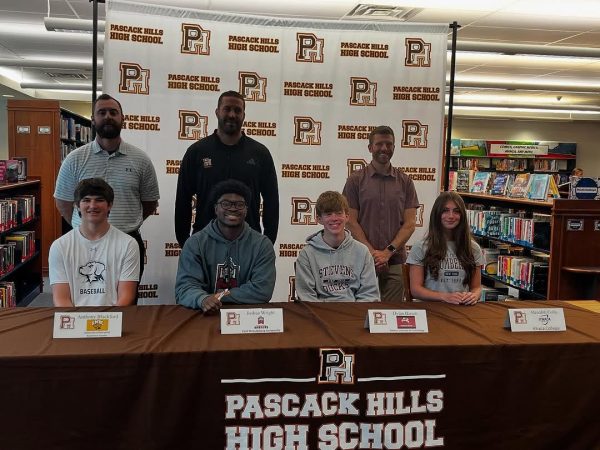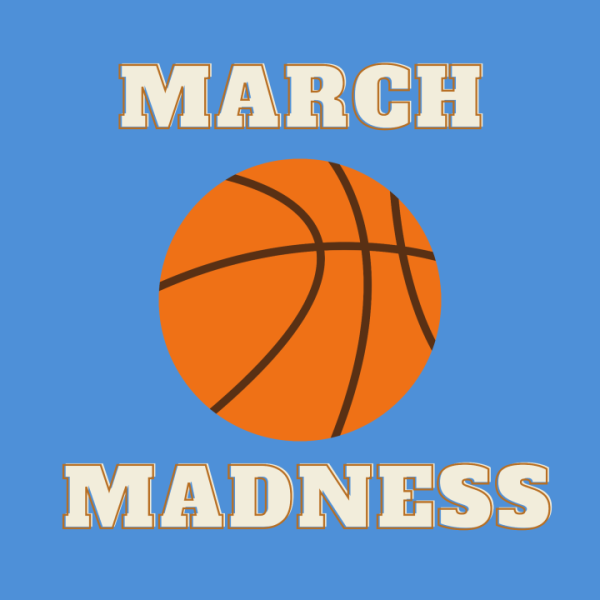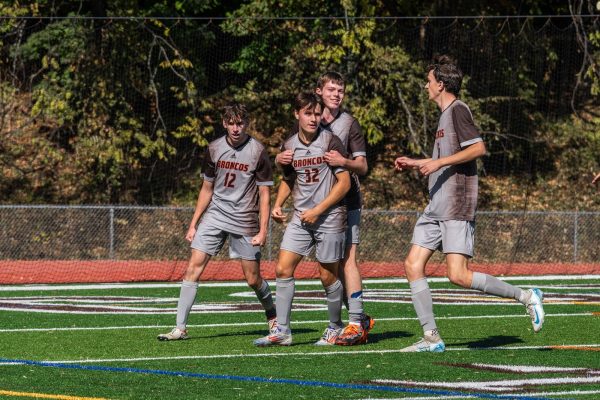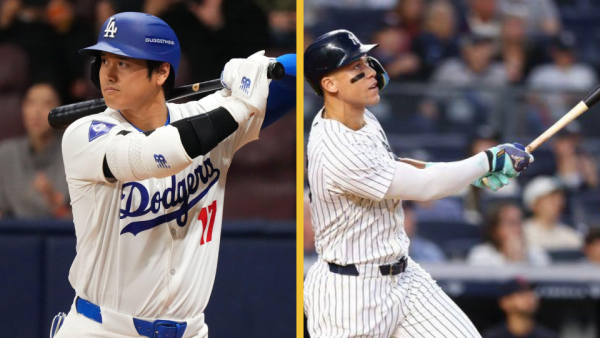The NCAA’s Corruption and Consequences
The National Collegiate Athletic Association, commonly known as the NCAA, has become stricter in recent months and this has brought forth a question that many are trying to answer: how strict is too strict?
With new scandals coming out in Men’s Division I basketball in the past few months that have led to FBI probes and countless accusations, the NCAA has taken a rigid stance on dealing out and upholding punishments.
The most recent scandal that came to light has been the corruption, bribery, and fraud in which possible recruits have been paid money in order to commit to a certain school. The student-athletes who were paid into the tens of thousands of dollars have violated NCAA ruling in which accepting bribes and other monetary offers would deem them ineligible to play. This under-the-table money has been called the largest “underground recruiting operation.”
This report, released by Yahoo, exposed players who were also connected to NBA agent Andy Miller and his former associate Christian Dawkins, as well as his agency, ASM Sports. Documents that allegedly show cash advances, entertainment, and travel expenses paid for college prospects and their families had been found. Arizona head coach, Sean Miller, was also caught on an FBI wiretap discussing a $100,000 payment to freshman player DeAndre Ayton, who was at the time a possible recruit for the University of Arizona.
Arizona battled back from the FBI tap, saying, “This is an emotionally charged issue but it is essential that we move forward decisively and based on facts,” Regents chair Bill Ridenour said in a statement. “We must do everything we can to ensure that our programs are of the highest caliber as we must also protect the rights of all involved and respect due process for employees.”
Sean Miller was suspended from his job for a week and as of March 1st, 2018, an internal university review reported that Miller has been cleared to continue coaching after he professed his innocence past Thursday, saying that he had “never paid a recruit or a prospect” and would never do so.
Schools have been nervous with this fraud, already firing five assistant coaches — Chuck Persons at Auburn, Emmanuel Richardson at Arizona, Tony Bland at USC, Jordan Fair at Louisville and Lamont Evans at Oklahoma State — to stop from possible further sanctions.
Lebron James, arguably the best player of all time, one who famously skipped college basketball in order to be the first pick in the NBA Draft in 2003 commented, “I don’t know if there’s any fixing the NCAA. I don’t think there is. It’s what’s been going on for many, many, many, many years, I don’t know how you can fix it. I don’t see how you can fix it. I don’t know all the ins and outs about it. I don’t know all the rules and regulations about it, but I do know what five-star athletes bring to a campus, both in basketball and football.
He continued by saying, “I know how much these college coaches get paid. I know how much these colleges are gaining off these kids. I’ve always heard the narrative that they get a free education, but you guys are not bringing me on campus to get an education, you guys are bringing me on it to help you get to a Final Four or to a national championship.”
“I’m not a fan of the NCAA,” James said, “I love watching March Madness. I think that’s incredible. I’m not a fan of how the kids don’t benefit from any of this, so it’s kind of a fine line and I’ve got a couple boys that could be headed in that direction, so there’s going to be some decisions that we as a family have to make.
He concluded the press release by unloading a bombshell that although many knew of it, no one spoke, “The NCAA is corrupt, we know that. Sorry, it’s going to make headlines, but it’s corrupt.”
Sports Illustrated writer Jeremy Woo explains that most of the blame had been going to head coaches at colleges or to ASM Sports: “I think the one thing that has been sort of pleasantly refreshing about a lot of the coverage is that people are not heaping blame on the kids because it’s not their fault. Ultimately, they are victims of this system it’s been going on for a long time. Anytime you take away the element of currency, you create this black market, and it’s a high functioning one.”
All colleges listed in the report are as followed: Duke, North Carolina, Texas, Kentucky, Michigan State, USC, Alabama, North Carolina State, Seton Hall, LSU, Maryland, Washington, Texas, South Carolina, Louisville, Utah, Xavier, Wichita State, Clemson, Kansas, Creighton, Notre Dame, Vanderbilt, Virginia, and Iowa State.
This scandal focuses around the most elite colleges in the country both academic and athletic wise, and almost exclusively in the six power conferences: ACC, SEC, Pac 12, Big 12, Big East and Big Ten.
Players that have been listed in the documents include Chimezie Metu, a junior from USC who allegedly received $2,000 from the ASM agency. USC said it launched an immediate investigation after the release of the documents and has determined that Metu is eligible to play, but that if more information comes in, the university will act accordingly.
Bennie Boatwright, another USC player had received $2,000 in a loan or payment, according to the documents. USC has said it will look into Boatwright’s eligibility, but he will miss the remainder of the season with a knee injury regardless. Junior Eric Davis, from the University of Texas, also allegedly received a $1,500 loan or payment from the agency. Texas will hold Davis out as it continues to investigate the matter.
Other players, like Duke freshman Wendell Carter Jr., Michigan State’s Miles Bridges, and Alabama’s Collin Sexton, and their families had lunch with representatives from ASM but it’s not clear if they paid for their own meal. Overall, it seems that cases like lunch dates which cost no more than $100, according to the document, are so miniscule that there will be no punishment.
The players and colleges have yet to be punished for their roles in bribery, but it’s almost certain there will be fallout. The NCAA is most likely deciding not to indict players until after March Madness and the 2018 National Championship, but it’s unclear if future punishments would impact a school’s eligibility and certain students from playing, and therefore forfeiting a possible win.
Especially with March Madness here already and the 2018 National Championship in the near future, the tournament will be riddled with more accusations and players having to sit out if more documents are found and released.
The tournament also brings up the ethical question about the fairness of the situation. The student-athletes, those who play the game to bring a championship to their school, aren’t paid a cent, while coaches, schools, TV networks, athletic directors/administrators, shoe and apparel companies, agents, and advertisers make millions.
Last year the NCAA made around $1 billion in revenue from media rights fees, ticket sales, corporate sponsorships and a proliferation of television ads during the three week long tournament. So the students may be getting a free education (if they choose to stay and graduate but their NBA draft spot would be off due to younger and better players, therefore almost guaranteeing a worse spot) but is that enough for free labor?
Junior Nate Barcus says, “I think paying college athletes turns into a very slippery slope. College athletics has very strict gender equality rules, that in many opinions, even favor women’s athletics over men’s. So once you start paying the big programs, usually basketball and football, then there is an outcry from women and less popular men’s athletics. Take The University of Connecticut for example, the best women’s program of all time, and probably make the school about as much money as the men’s, are you not gonna pay them? And if you do, they can’t be the only women being paid. I am in favor of monitored free meals or something. But straight money is dangerous.”
Junior Hanna Kimball agrees with Barcus saying, “While I’m not a big fan of sports I do believe that paying college athletes is a bad idea for the university. I think this is bad because it clearly is showing that athletic programs are doing things for the wrong reasons with a horrible motivation to succeed if they simply want to just pay their way to success.”
The real question behind this whole scandal is if the FBI — or the NCAA, for that matter — can prove that coaches at these top colleges and top basketball programs directed agents, like from Andy Miller, to help out players and/or their families? If yes, there could be a huge shakeup across the college basketball landscape. But if not, probably nothing will change and the system will stay just as broken as it currently is.
Even NCAA president Mark Emmert had said in the wake of recent reports detailing all manner of corruption in big-time college basketball that this is the result of “systematic failures.” The NCAA needs to be reevaluated and redone, and soon because this has been an issue for a while. Even Pulitzer Prize-winning historian Taylor Branch published a piece about injustice and inequity in the NCAA, “The Shame of College Sports,” in The Atlantic back in 2011. He stated that these fixes must be wholesale, and the debate must be public. Now is not a time for more backdoor and under-the-table deals with the heads of schools and officials, but instead a revolution in which the country is involved.
But one of the hardest things to deal with is that coaches can’t be responsible for players meeting with recruiters, especially if these meetings took place during a high school career. Instead, the NCAA should look into the recruiter, who obviously would know NCAA rules of bribery and still continued to ignore them.
Barcus says, “This NCAA scandal is a tough one to really pin down and blame one person and bring to an end. The problems is that for such a long time so many schools have been doing all sorts of illegal recruiting and tampering that it’s almost the norm. There is no way to really stop backdoor special treatment of athlete’s because there is no way to monitor so many people at once.”
Because the FBI has decided to show their interest, this means that the investigation and prosecution of players, even those who graduated and play in the NBA now, can take a long time. Federal cases are notorious for taking months and even years to come to a conclusion. The possibility of the scandal hanging over college basketball for many seasons to come is high, and the chance of quick change is unlikely.
Although, with other more important things that the FBI should be interested in and be looking into, like warning signs of the Florida Shooter or the Russian connection with the previous presidential election, it seems like their time is being wasted looking into the NCAA.
Not only has the NCAA as a whole been investigated by the FBI as well as colleges in particular, but the NCAA has imposed their own stricter ruling to combat the recent negative press. If this FBI probe had not occurred or blown up to the proportion it is now, the NCAA would have likely let the following go.
The NCAA decided on Tuesday, February 20th, 2018, to uphold their decision to remove the 2013 Division I Men’s basketball championship and other wins from the University of Louisville’s Cardinals. This decision comes after a repeal from the Cardinals which was issued around October 2017.
In 2015, a book by escort Katina Powell claimed that former Cardinals basketball staffer Andre McGee hired her and other dancers to strip and have sex with possible men’s basketball recruits. This caused an FBI probe which initially involved the arrests of 10 people. The school also suffered financially by having to pay fines and forfeit their 2013 National Championship.
Louisville interim President Dr. Greg Postel said in a statement,”I cannot say this strongly enough: We believe the NCAA is simply wrong and we disagree with the NCAA ruling for reasons we clearly stated in our appeal. And we made a strong case — based on NCAA precedent — that supported our argument.”
But the appeal wasn’t enough to keep the wins for the Cardinals and the NCAA has decided to uphold the penalization of the school. This is the first time the NCAA has stripped a program of the championship won in the Division I men’s basketball tournament, and the total loss of 123 wins from 2012 to 2015, a four year probation, and a payment of roughly $600,000 in fees is a hefty punishment for a scandal which technically had no effect on the players nor the game. Individual records of student-athletes will also be vacated.
The Infraction Appeals Committee is in charge of dealing with problems that arise and for what it considers major rule violations in an eight-page decision, Louisville’s punishment seemed complete.
Ex-head coach Rick Pitino, a figure with other scandals under his belt including recruitment bribery over former recruit Brian Bowen, who was fired in October of 2017, is ready to take legal action against the NCAA. Pitino has already sued The University of Louisville for wrongful dismissal but believes that the students deserve their 2013 Championship.
Online, on the official NCAA website, the media publicist states that “The Committee on Infractions responded to the appeal by stating the penalties were appropriate due to the serious, intentional and numerous violations orchestrated by a university staff member for nearly four years. It further argued that student-athletes do not have to be culpable for the vacation penalty to be appropriate, and because the serious nature of the violations resulted in the participation of ineligible student-athletes, the vacation of records penalty was appropriate.”
Commenting on the appeal, NCAA states, “In its review of the case, the appeals committee found that because of the serious and intentional violations with the direct involvement of a university staff member, the Committee on Infractions panel was within its legislated authority to prescribe the vacation of records and financial penalty. The appeals committee stated when student-athletes participate while ineligible, these types of penalties are appropriate. It also did not find the university’s argument about what could have happened during the reinstatement process compelling, stating there is no guarantee regarding the reinstatement process.”
It’s questionable if this ruling was totally fair, as one of the members of the Infraction Committee was David Williams, a committee chair and vice chancellor for athletics and university affairs and athletics director at Vanderbilt. Although the two schools are not connected nor do they play in the Atlantic Coast Division (Vanderbilt is a member of the Southeastern Conference) together, it could seem like a biased decision.
University of Louisville’s interim Athletic Director Vince Tyra said speaking at the news conference: “We’ll certainly remove the formal recognition of our accomplishments from our facilities, but [the ruling] won’t remove it from our hearts and our minds.”
After personally calling multiple times and leaving messages at the Athletic Director’s office as well as the Head and Assistant Coaches office at UL, there was no response to the questions of possible legal action or opinions of other schools being caught in bribery and corruption.
Overall, this change in ruling, more specifically the harsh punishment, was a huge change in step for the NCAA, who is known for being incredibly lenient, especially with previous Division I ACC men’s basketball teams like The University of North Carolina.
A 2010 ESPN report exposed UNC’s academic-athletic fraud and academic dishonesty scandal which involved fake classes football student-athletes signed up for in order to receive credits but these classes were either substandard or non-existent.
These fake classes came from the UNC Department of African and Afro-American Studies (known as AFAM) which had little to no requirements and served as “Easy A” classes which boosted GPAs and made it easier to graduate.
Kenneth L. Wainstein, a former official in the United States Department of Justice, was hired by the University to conduct an independent investigation and found that at least 3,100 students took the “nonexistent” classes. 40 percent of students enrolled in the questionable AFAM classes were football and basketball players.
Grade changes for student-athletes were a serious problem as 106 were identified as “unauthorized”, 454 as “potentially unauthorized”, 373 were “inconclusive”, and 203 were legitimate. About 10% of students were deemed as not “college literate” which means that they hadn’t received a minimum score of 400 on the SAT or a 16 on the ACT.
This scandal was brought back to light when in 2014 a teacher’s assistant posted online what was called “the most dreadful essay ever.” The 146 word grammar-challenged and confusing final paper described Rosa Parks’ actions in Montgomery, Alabama. The athlete who submitted the paper received an A-minus.
During the investigation, the University of North Carolina cited cases where Auburn and Michigan had similar misconduct and the NCAA did not act. The NCAA completed its investigation in October 2017, finding no violations of the official rules and imposed no athletic punishments.
Compared to the Louisville sex scandal, this education based problem (as GPAs would deem some players ineligible to play) seems like it would cause a greater ruckus, the result was quite the opposite, and many now are angry that the rules are being enforced.
Barcus says, “The NCAA is coming down harder now more than ever because it is being put on such a bright light, even getting the FBI involved. There are very strict rules that must be followed by all people that these big programs think they are above, when in the end they aren’t. The NCAA had to put a stop to this because it’s only a matter of time before it escalates and worse crimes are committed.”
With all of these scandals and the harsh punishments (compared to what occurred before) the NCAA has been dealing out recently, it’s time to realize that enough is enough. The system is broken and is founded on punishing those who need the most help. Instead, the NCAA needs to rebuild itself based on new rules that allow the players to be fairly compensated and to focus on issues and “scandals” that would impact a player’s game time.
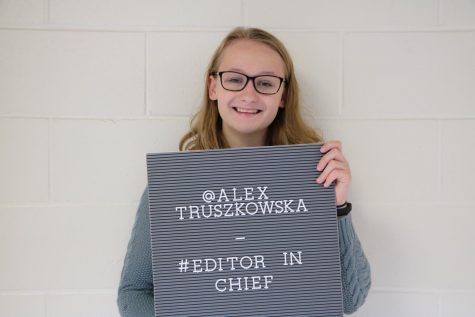
Alex is a senior and this is her fourth and final year on The Trailblazer. She was the Arts & Entertainment editor junior year and became Editor in Chief senior year. She is so excited for her last year, teaching the underclassmen, and making this the best year yet!








































